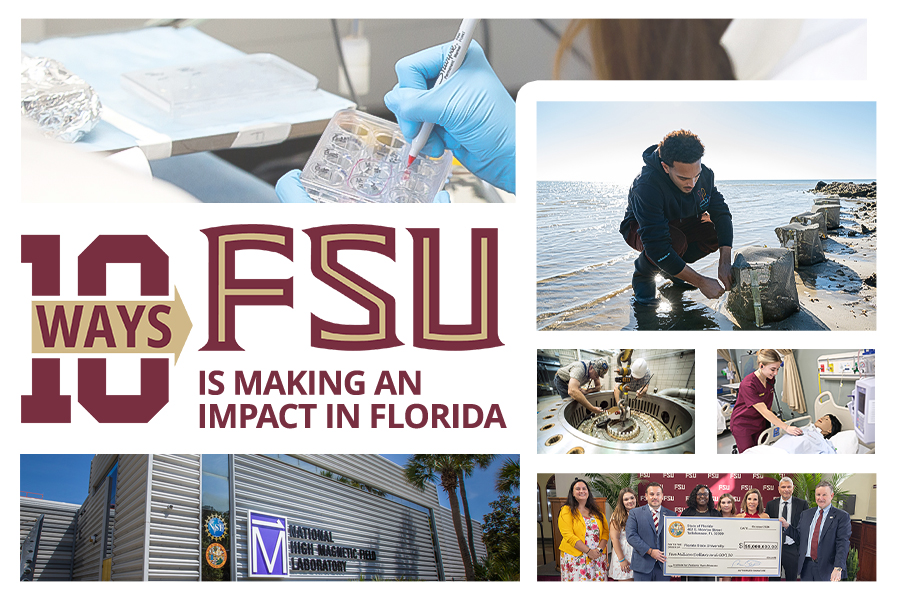
Researchers at Florida State University are helping to develop the next-generation technologies and breakthroughs that will have positive impacts on Florida and the world. In medicine, childhood literacy, weather forecasting, food safety and other fields, FSU researchers are providing expertise and solutions to help solve difficult problems.
Here are some of the ways FSU is making a difference:
Magnifying Impact: The National High Magnetic Field Laboratory
FSU is home to the National High Magnetic Field Laboratory, the largest and most powerful facility of its kind in the world. Each year, it hosts thousands of researchers whose work tackles critical questions in materials, technology, energy, health and the environment. With generous support from the Florida Legislature, MagLab scientists and engineers have developed a revolutionary process that would potentially extract $20 billion worth of previously untapped rare earth materials from phosphogypsum stacks across central Florida.
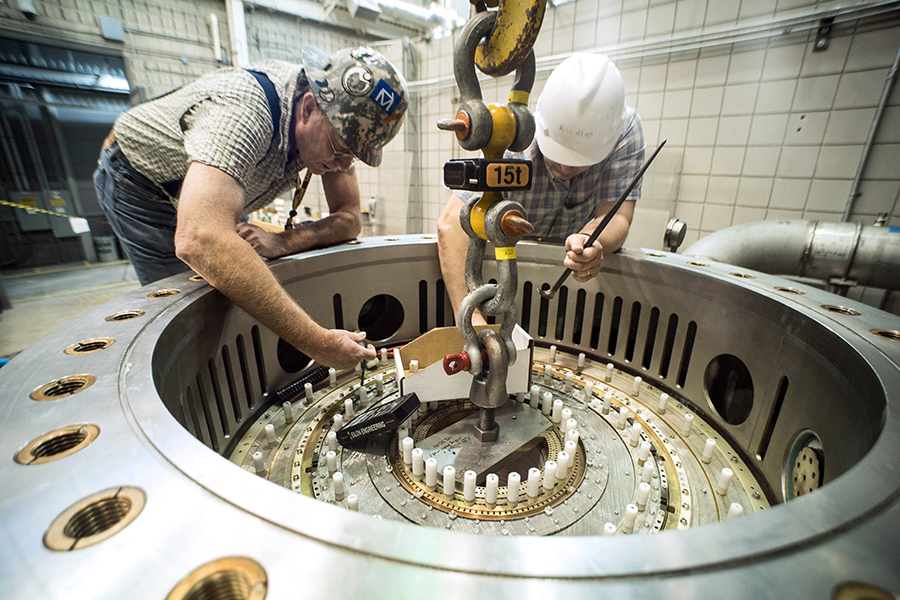
Pioneering Medical Research to Combat Rare Pediatric Diseases
The Institute for Pediatric Rare Diseases (IPRD), a key initiative of the FSU College of Medicine, is transforming the landscape of rare disease research, treatment and advocacy. Some of IPRD’s cutting-edge initiatives include establishing a whole-genome sequencing lab, expanding genetic counseling services and funding over 20 active research projects. With strong backing from university leadership, legislative funding and community partnerships, the institute is accelerating medical advancements that will improve the lives of children and families worldwide.
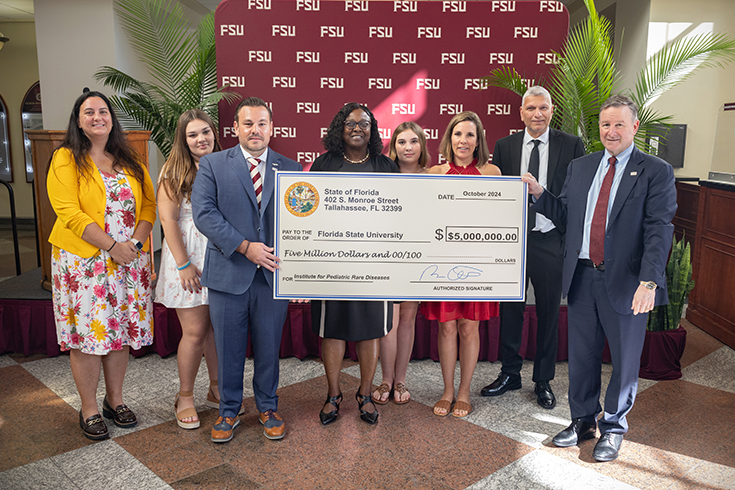
Enhancing Extreme Weather Predictions with Innovative Techniques
Researchers at the FAMU-FSU College of Engineering have developed Empirical Quantile Mapping with Linear Correction (EQM-LIN), a groundbreaking technique that improves the accuracy of extreme weather forecasts. Through integrating advanced statistical modeling with bias correction techniques, EQM-LIN enhances weather projections, aiding disaster preparedness. Initially focused in South Florida, this research is expanding statewide to help stakeholders identify flood-prone areas and protect vulnerable infrastructure.
Equipping Children with a Lifetime of Literacy
Since 2002, the Florida Center for Reading Research (FCRR) has been a driving force in advancing literacy through evidence-based research and innovation. By developing reading resources, assessment tools and interventions, FCRR supports learners of all ages, ensuring reading is accessible to all. Collaborating with educators, policymakers and researchers worldwide, FCRR’s efforts are transforming literacy education and improving learning outcomes.

Leading Innovations in Food Safety
Researchers at the Anne Spencer Daves College of Education, Health, and Human Sciences are developing rapid, standardized tests for detecting foodborne pathogens. Offering unmatched speed and efficiency, these tests are invaluable for stakeholders such as food processors and testing labs. FSU research also helped to develop the RIGHTTest, a seafood identification tool used by SeaD Consulting to detect mislabeled shrimp. Innovations like these promote transparency and accountability, playing a crucial role in ensuring public safety in the food industry.
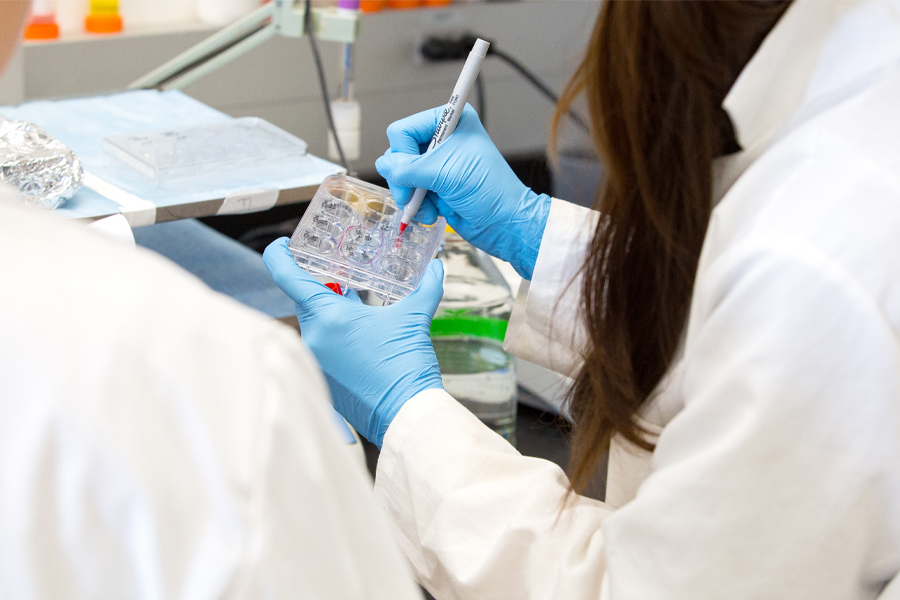
Advancing Research and Response in Emergency Management
The Emergency Management and Homeland Security Program at FSU stands out for its leadership in preparedness, response, recovery and mitigation across diverse emergency scenarios. Its members actively contribute to the Florida Division of Emergency Management’s State Emergency Response Team (SERT) and the Florida Urban Search and Rescue (US&R) system, assisting in air operations and disaster response efforts, such as those following Hurricane Idalia. Beyond field operations, the department is nationally recognized for its cutting-edge research. A current study on information transmission within unmanned aircraft systems explores potential cybersecurity risks to U.S. infrastructure. As innovations in technology advance, this research plays a vital role in safeguarding government agencies and the public.
Empowering Veterans for Academic and Career Success
FSU’s Student Veterans Center (SVC) is a national leader in supporting student veterans and helping them achieve academic and career success. Enlisting in the U.S. military equips individuals with valuable skills such as strong decision-making and self-discipline, which are highly sought after by employers. However, challenges like limited prior higher education and a lack of workforce experience can impact veterans’ career opportunities. The SVC not only makes higher education more accessible but has also increased student veteran graduation rates by 15% in recent years. By ensuring veterans have the support they need to complete their education, the SVC helps produce highly skilled and desirable employees for the workforce.
Expanding Health Care Access and Research
With the goal of improving access and innovation in health and health care in Northwest Florida, Florida State University has announced plans to build an acute care hospital in Panama City Beach. The planned hospital will be located in the same medical district and adjacent to a new medical office building that opened in July 2024 and currently offers primary care, urgent care, cardiology and pulmonary services. Beyond meeting community health care needs, the campus is distinguished by its commitment to advancing research in aging and digital health, ultimately enhancing the quality of life in this region and beyond.
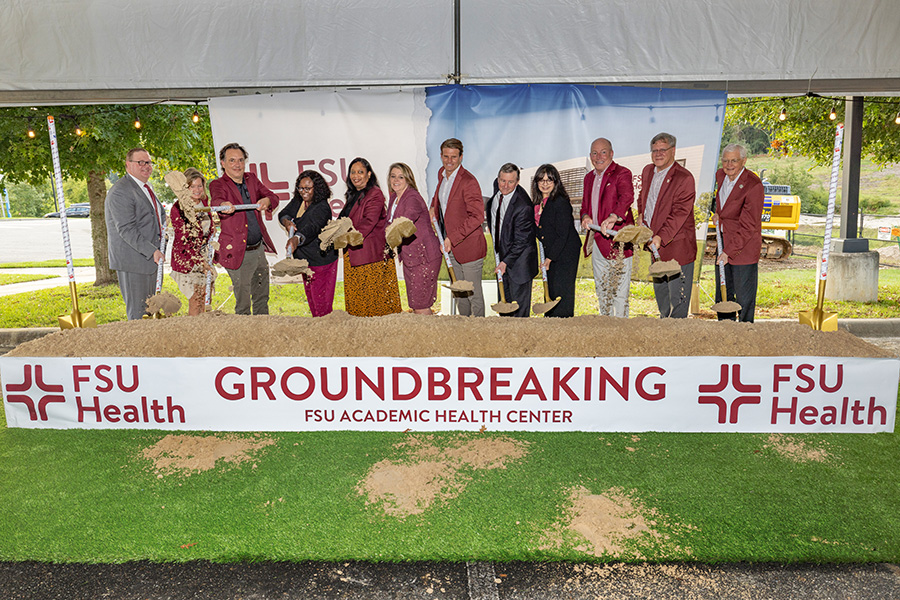
Restoring Apalachicola Bay
The Apalachicola Bay System Initiative (ABSI) was established at FSU’s Coastal and Marine Laboratory to help restore what was once a top fishery. After four years of research and stakeholder engagement, ABSI developed a community-centered restoration and management plan for Apalachicola Bay. This plan outlines five key goals supported by research-backed strategies, serving as an ‘ecosystem roadmap’ that the legislature is encouraged to adopt. Implementing this framework will restore the bay and foster a thriving economy.
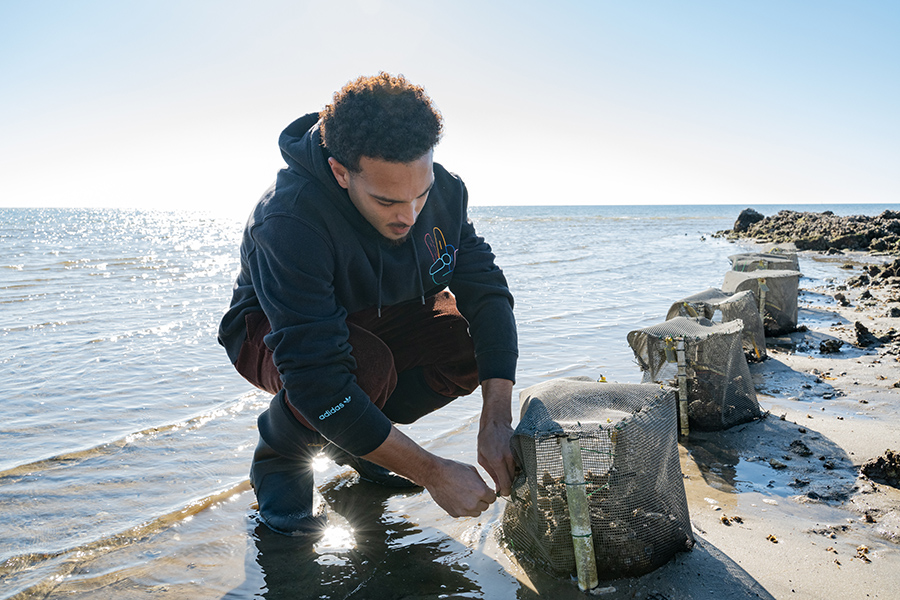
Optimizing AI to its Fullest Potential
Recognizing the growth of AI, Florida State University is equipping future professionals with expertise in emerging technologies. The College of Nursing, for example, is the first nursing school in the nation to offer a concentration in AI Applications in Healthcare, bridging the gap between AI and nursing practice to improve patient outcomes and efficiency in health care delivery. At the College of Law, groundbreaking research explores the intersection of AI and law, reinforcing FSU’s leadership in legal education. Through integrating AI into coursework, FSU ensures students are prepared to succeed in an evolving world across all fields of study.




